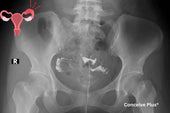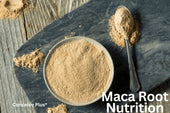Can Woman Achieve It All? A Look Into Capabilities, Biology, and Boundaries

In modern discussions of health, capability, and equality, the question can woman do something is no longer about permission—it’s about understanding possibility. Whether addressing physical potential, reproductive choices, emotional resilience, or societal roles, the conversation goes far beyond yes or no. While science continues to uncover more about female anatomy and physiology, myths and outdated assumptions still linger. By examining biology, psychology, and social dimensions, we gain clarity on what women truly can do—and what limitations remain.
Understanding the Biological Landscape
When it comes to the human body, signs of female development begin well before birth and continue to evolve across a woman’s lifespan. Chromosomes—typically XX in females—lay the groundwork for the development of internal reproductive organs such as ovaries and a uterus, as well as secondary sex characteristics like breast tissue and a higher body fat percentage. However, biology is never a strict blueprint. Just as no two women are identical, female bodies differ significantly in metabolism, hormonal cycles, fertility, bone density, and muscle distribution [1].
Some women naturally have higher testosterone levels than others, which may enhance muscle growth or alter menstrual regularity without necessarily compromising reproductive health. Conversely, others may experience conditions like polycystic ovary syndrome (PCOS) or hypothyroidism that disrupt normal hormonal balance, impacting ovulation, mood, and physical appearance. Questions such as can a woman get pregnant during menstruation? or “can woman build the same muscle mass as a man? don’t have simple yes-or-no answers because biological variation is vast.
Understanding female biology isn’t about setting limitations—it’s about acknowledging complexity. The more we understand hormonal fluctuations, genetic differences, and physical diversity, the better equipped we are to support health, fitness, fertility, and overall well-being across every stage of a woman’s life [2].
Fertility, Reproduction, and Beyond
A frequent question is: Can woman get pregnant any day of the month? Biologically, pregnancy is most likely during ovulation, but sperm survival can complicate the timeline. The signs of female fertility, such as cervical mucus changes or basal body temperature shifts, are helpful markers, but they aren’t foolproof. This is where fertility awareness and modern tracking tools play a significant role.
For those trying to conceive or avoid pregnancy, the right knowledge makes all the difference. Products available at Conceive Plus can support either goal. They offer fertility-friendly options and support for timing intercourse effectively, enhancing or reducing the chance of conception depending on one’s intention [3].
Another common curiosity is: Can a woman get pregnant without penetration? Technically, it’s rare, but if semen reaches the vaginal opening, there is a slim chance. While statistically low, such events underline the importance of understanding anatomy and contraception.
Hormonal Changes Across Life Stages
From puberty to menopause, the female body undergoes cyclical changes governed by estrogen, progesterone, and other hormones. These fluctuations impact mood, energy levels, and even cognitive performance. Can woman maintain the same energy level throughout her cycle? Not always. In the follicular phase, estrogen promotes increased energy and better performance in endurance tasks. During the luteal phase, fatigue and emotional sensitivity may rise.
Understanding these natural rhythms empowers women to work with their biology rather than against it. It also invites a more compassionate view of emotional and mental health shifts that coincide with hormonal transitions.
As women age, the question becomes can a woman conceive naturally after 40? While fertility does decline, it is still possible—though often with more difficulty. Assisted reproductive technology has extended these boundaries, offering hope where nature may begin to fade. However, with age comes a higher risk of complications, making informed decision-making vital [4].
If you've ever questioned, getting pregnant without ovulating, our detailed guide "Can You Get Pregnant When Not Ovulating?" provides clear, evidence‑based insights into this fascinating aspect of fertility.
Physical Performance and Strength
Can woman achieve the same physical feats as men? The short answer is: it depends on the feat. On average, men have more muscle mass and higher hemoglobin levels, contributing to superior upper-body strength and endurance. But women often outperform men in ultra-endurance sports and show higher fatigue resistance during sustained, moderate efforts. Female physiology includes adaptations like higher body fat percentages, which serve evolutionary and hormonal functions and even play a role in long-term energy efficiency.
Athletic performance isn't purely biological—it’s influenced by training, mindset, and opportunity. In fact, when given equal access to coaching and competition, women have proven that many previously male-dominated sports can be mastered by anyone, regardless of sex.
Emotional Intelligence and Multitasking
Popular narratives often state that women are more emotionally intelligent or better multitaskers. While these ideas hold some observational merit, science offers a more nuanced view. Can woman process emotions differently than men? Yes, but this isn’t necessarily a function of biology alone. Socialization, life experiences, and communication training all contribute.
Studies do show differences in how men and women respond to stress and emotional cues, especially in interpersonal relationships. Women may show more activation in brain areas tied to empathy and emotion regulation. However, saying “women are better at emotions” is overly simplistic and fails to account for individual variation.
As for multitasking, research suggests that while women may switch between tasks with slightly more agility, prolonged multitasking leads to reduced performance across the board—regardless of gender. Therefore, managing focus and task priority is more about strategy than gender-specific talent [5].
Examining Leadership and Cognitive Capacity
Historically, leadership roles were dominated by men due to structural and cultural barriers. But this has never meant women lacked capability. Can a woman lead under pressure? Absolutely. In fact, many women excel under high-stress scenarios due to advanced crisis management and collaborative thinking skills. Traits often associated with female leadership—empathy, listening, adaptability—are now recognized as strengths in modern organizational dynamics.
Neurological studies have not found significant differences in general intelligence between sexes. Differences in spatial reasoning or verbal fluency tend to average out across diverse populations. When given equal educational opportunities, women match or surpass men in academic achievement across most subjects, further dismantling the myth that leadership or cognitive excellence is gendered.
Sexual Health and Satisfaction
Sexual wellness is another area where curiosity leads to questions like can woman orgasm more than once? Biologically, yes. Unlike men, women don't have a refractory period that halts pleasure immediately after climax. This allows for the possibility of multiple orgasms, provided the right stimulation and relaxation. However, achieving this isn’t universal—it depends on emotional connection, physical comfort, and open communication.
Other concerns include can woman feel pain during intercourse? and the answer, unfortunately, is yes—especially if arousal is insufficient, or if conditions like vaginismus or endometriosis exist. Knowing the signs of female sexual discomfort—such as involuntary tightening, dryness, or avoidance of intimacy—is vital for resolving issues early through medical or therapeutic intervention.
There’s also the consideration of libido. Can woman lose interest in sex during stress or hormonal changes? Definitely. Fluctuations in estrogen, cortisol, and even thyroid levels can all influence desire. Understanding that libido is dynamic allows both partners in a relationship to approach it with empathy instead of blame [5].
If you're curious about whether you can get period if your pregnant, check out our article "Can You Get Period if Your Pregnant? What Facts Say" for evidence‑based insights into this common question.
Mental Health and Resilience
Historically, women have been more likely to seek help for anxiety, depression, and related conditions, which has contributed to the perception that they experience mental health struggles more frequently than men. In truth, this disparity often reflects differences in reporting rather than actual prevalence. Social stigma and cultural norms discourage many men from expressing vulnerability, leading to underdiagnosis in male populations. When people ask, “can woman be more prone to emotional fluctuations?” the answer requires nuance. Hormonal cycles—especially during menstruation, pregnancy, and menopause—can influence mood. But emotional responses are also shaped by life stressors and the burden of societal expectations.
Women often juggle multiple roles, balancing careers, caregiving, emotional labor, and community involvement. This constant multitasking, often invisible, can heighten emotional fatigue. However, women also display remarkable mental resilience. Psychological research highlights their strengths in emotional intelligence, empathy, and social bonding—traits that promote healthier coping mechanisms. Their adaptability, especially in caregiving or crisis scenarios, showcases strong emotional regulation and perseverance. Mental health models increasingly acknowledge that women’s resilience is not in the absence of stress, but in how they manage and recover from it. Recognizing these dynamics is crucial to developing more inclusive, responsive mental health strategies that serve all individuals equitably [6].
Cultural Expectations vs. Capability
There remains a persistent gap between what women are capable of and what they are culturally expected to do. Traditional norms have long dictated that a woman’s primary role is within the home, raising children and managing family life. While societal views have evolved, remnants of these expectations still influence perceptions of success and identity. Can a woman truly pursue a high-powered career and raise a family at the same time? Absolutely—but this dual pursuit is heavily dependent on supportive structures such as affordable childcare, equitable parental leave policies, a partner who shares responsibilities, and workplaces that promote flexibility without stigma.
When society asks, “can woman have it all?” the question often carries unrealistic expectations of perfection in every area—professional excellence, flawless parenting, a vibrant social life, and emotional poise. In reality, the concept of “having it all” varies from person to person and shifts over time. The more appropriate question is whether women have the freedom to define their own all. Fulfillment should not be measured by external standards but by an individual’s chosen path—whether that includes leadership, caregiving, artistic expression, entrepreneurship, or a peaceful balance of many roles. True equality lies in enabling those choices without judgment or limitation.
The Bottom Line
The phrase can woman often begins as a question laced with uncertainty, shaped by centuries of societal limitations, gender norms, and misinformation. Yet time and evidence consistently turn these doubts into declarations of ability. Whether it’s excelling in sports, leading nations, creating scientific breakthroughs, nurturing families, or overcoming adversity, the answer to can a woman? is overwhelmingly affirmative. She can—and she does.
Women’s contributions span every aspect of life, from the physical to the intellectual, the emotional to the creative. The same woman can train for a marathon, lead a business meeting, comfort a grieving friend, and raise a child—all in the same day. This isn’t exceptional—it’s reality. The resilience, adaptability, and determination that women demonstrate daily often go unrecognized, not because these traits are rare, but because they’re normalized and expected.
Still, it's essential to remember that each woman is an individual, not a stereotype. Her abilities are influenced by biology, yes, but also by the opportunities available to her, the support she receives, and the freedom she has to choose her path. When outdated assumptions are challenged and resources are made accessible, the question can woman? becomes rhetorical. She already is, and she always has been.
References
- Gilbert SF. Developmental Biology. 6th edition. Sunderland (MA): Sinauer Associates; 2000. Chromosomal Sex Determination in Mammals. Available from: https://www.ncbi.nlm.nih.gov/books/NBK9967/
- Rasquin LI, Anastasopoulou C, Mayrin JV. Polycystic Ovarian Disease. [Updated 2022 Nov 15]. In: StatPearls [Internet]. Treasure Island (FL): StatPearls Publishing; 2025 Jan-. Available from: https://www.ncbi.nlm.nih.gov/books/NBK459251/
- Katz DF. Human cervical mucus: research update. Am J Obstet Gynecol. 1991 Dec;165(6 Pt 2):1984-6. doi: 10.1016/s0002-9378(11)90559-6. PMID: 1755453.
- McRae K, Ochsner KN, Mauss IB, Gabrieli JJD, Gross JJ. Gender Differences in Emotion Regulation: An fMRI Study of Cognitive Reappraisal. Group Process Intergroup Relat. 2008 Apr;11(2):143-162. doi: 10.1177/1368430207088035. PMID: 29743808; PMCID: PMC5937254.
- Stout ME, Hawkins MAW. Temporal Relationships Between Pain During Intercourse (PDI), Loneliness, and Depressive Symptoms Among Women. Sex Med. 2021 Dec;9(6):100444. doi: 10.1016/j.esxm.2021.100444. Epub 2021 Oct 11. PMID: 34649130; PMCID: PMC8766269.
- Reed BG, Carr BR. The Normal Menstrual Cycle and the Control of Ovulation. [Updated 2018 Aug 5]. In: Feingold KR, Ahmed SF, Anawalt B, et al., editors. Endotext [Internet]. South Dartmouth (MA): MDText.com, Inc.; 2000-. Available from: https://www.ncbi.nlm.nih.gov/books/NBK279054/































